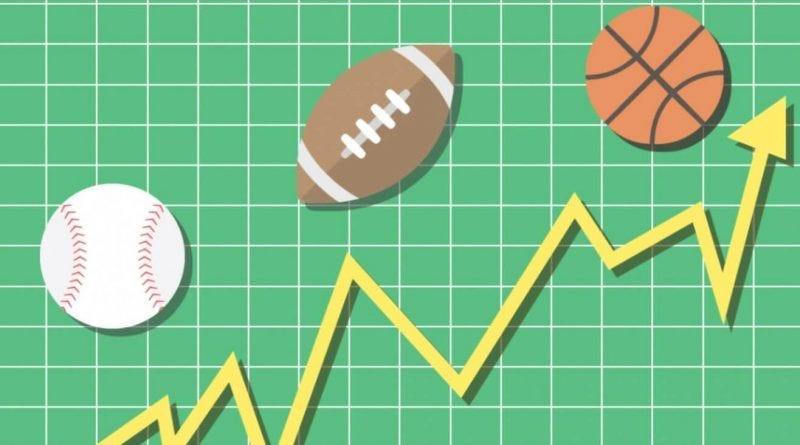Home and away records are crucial when making predictions about the outcome of sports due to various reasons: Home Advantage:
The familiar environment: Teams who play at home have a familiar surroundings. This may boost their comfort and confidence. The field or court is well-known to them which can be an advantage.
Fan Support: Fans can boost motivation and morale. The energy from the crowd can positively influence the performance of the home team, and potentially intimidate the visiting team.
Travel Fatigue
Mental and physical fatigue Teams who travel frequently face the challenges of travel, including physical fatigue and interruptions to their routines which can adversely affect their performance.
Time Zone Differences – When it comes to long distance travel, time zone change can alter sleep patterns as well as players’ general level of ability to perform.
Historical Trends
Consistent performance: historical records of both at home and abroad may identify patterns. Some teams consistently perform well at home while other teams struggle with their performance away.
Specific Results for Venues Teams that have particular success in specific locations because of their experience or favorable circumstances.
Relevance of Statistical Data
A large sample size is required to determine the outcome. These records can reveal actual trends across many matches.
Analytical comparison: Comparing a team’s road and home performance may identify differences. It also provides insights into the overall stability of the team as well as its flexibility.
Psychological aspects
Expectations of fans and pressure: When playing at home, there is an added pressure of high expectations. Teams must control this pressure to ensure they maintain performance.
Comfort Level – Players will feel more at ease, confident and comfortable in their own home. This can positively affect their game.
Context of the game
The importance and significance of a match can affect the results of both road and home records. If the game is crucial or a playoff game, performances may be boosted regardless of the place.
Opponent Quality: The power of a team’s opponent could determine the weight we give home and away records. The teams with the most strength could be able to counteract home advantage better than teams with weaker strengths.
External Factors
Weather Conditions. Outdoor sports are affected by the weather, which can vary widely between locations. Teams that are located in the home region are more knowledgeable about local weather conditions.
Altitude and surface: Teams could be affected differently by differences in the playing fields (grass or clay, turf and so on.) and also by their altitude and altitude, with the team from home typically being more used to such conditions.
The record of home and away is essential in predicting the outcome of sports. The records are a great way to gain insight into the dynamics of a team. They are especially useful when paired with other aspects like current form injuries, form, and head-to-head records. It is more accurate to base predictions on an exhaustive study of away and home results. Follow the most popular Free Soccer Predictions for site recommendations.

What Are The Importance Of The Tactical And Strategic Considerations In Trying To Predict Sporting Outcomes?
When trying to predict sporting results, strategic and tactical considerations play a major aspect. They are the creation and execution of game plans that focus on the opponent’s weaknesses, while also maximizing the strengths of a particular team. This is why they are important: Maximizing strengths while minimizing weaknesses
Exploiting Matchups Successful strategies include creating matchups that favorably. For instance, one football team might employ the speed of a winger to defeat a slow fullback.
Adapting the Conditions Team members can alter their strategies based on weather conditions as well as playing surfaces and venues, which maximizes their strengths.
Flexibility and adaptability
In-game Adjustments: Teams who are able to adapt their strategies during the course of a game are usually more successful. This can include tactical changes and changing teams.
The tactics of the opponent: Teams with a better chance of success are those who can successfully counteract it. Understanding and anticipating the strategy of the opponent can help reduce their strength.
Defensive as well as offensive strategies
Defense Organization: Effective defensive tactics, such as high pressing or deep defending, can stifle the attacker’s attacks. Teams that have an organized defensive system tend to concede less goals.
It’s possible to attack in a variety ways, whether it’s through rapid counter-attacks, possession play, or specialization at set pieces, can allow you to overcome even the best organized defense.
The roles of teams and players:
Clarity in Role – Defined roles within the team ensure that everyone knows the roles they play. This clarity is important for executing the overall plan.
Key Players: Using key players to maximize their impact in roles such as midfield playmaker, or attacking target man is vital.
Historical and Situational Analysis
Examining past meetings can aid in gaining more insight into how to approach upcoming games.
Current Form: Tactical considerations must be in line with the current structure of the team and players. The tactic that worked in the past might need adjustment if the form has changed.
Psychological Impact
Preparedness and confidence: Well-prepared teams that have clear strategies tend to play with greater confidence. This advantage in a psychological sense could be crucial in tight games.
Effective tactics can frustrate opponents and result in mistakes and losing motivation. This is vital.
Sport-Specific Considerations:
Soccer: Formations, such as 3-4-3, 4-3-3, and so on are essential. Also, set-pieces and pressing styles play an important role. The strategy you choose will determine how the midfield is managed, how wide areas are exploited, and the ability to break through defensive lines.
Basketball: The importance of tactics such as zone defense and. the man-to-man defense, pace, and offensive plays (e.g. the pick-and -roll play or isolation play) is vital.
Cricket: The field position as well as the bowling rotations, and batting order can significantly affect the result of a game and in particular, when playing in different formats such as Test matches and T20.
Coaching and Management Influence:
Knowledge of tactics: The capacity of a coach to understand the game, and devise and implement effective strategies, is often one of the most important elements that affect the performance of a team.
Team Buy-In: The extent that the players are able to comprehend and agree with the plan impacts its implementation. The execution of strategy has to be done in a coordinated way.
To conclude, it is important to consider tactical and strategic factors in predicting the outcomes of sports. They impact every aspect of performance, from individual’s to team dynamics. A deep understanding of tactic, when combined with an analysis of injuries forms and other variables can give a solid foundation for a precise prediction. View the best Tennis Picks Today for blog info.

What Is The Significance Of Psychological Factors When The Prediction Of Sports Performance?
These elements are vital as they affect the players’ motivation and mental state. These are the most important factors.
Positive Mindset: Teams with a positive mindset and self-confidence that is high are more likely than others to perform well, particularly in situations of pressure or when faced with strong adversaries.
Resilience: The psychological resilience of a team allows teams to bounce back from setbacks, maintain concentration, and work for success, even in difficult circumstances.
Motivation and determination:
Intrinsic Motivation: Internal factors such as personal goals, the desire to succeed, and pride in the sport can motivate players to perform at their peak, regardless of external pressures or distractions.
External Motivation: External factors such as team goals, fan support and the need to prove critics wrong can also fuel motivation and determination.
Mental Toughness:
Capability to handle pressure: People with a high mental toughness thrive under pressure situations, retaining their composure and making rapid decisions.
Focus and Concentration. Mental toughness allows athletes to focus on the task in focus. They can keep their attention away from distractions during games and maintain their focus.
Team Cohesion:
Positive Relationships Strengthening bonds and positive relationships among teammates leads to better communication, teamwork and performance.
Shared Goals Teams that have unison and shared goals are more able to conquer barriers and work together for achievement.
Handling Adversity:
Response to setbacks. How players and teams respond to setbacks like giving up a penalty or getting behind is influenced by psychological factors. Resilient teams are more likely to recover and create a comeback.
Mental Rebound refers to the ability and willingness to rebound from past mistakes.
Visualization and Preparation
Mental Preparation. Techniques for visualizing can boost confidence and improve performance during event.
Mental Imagery. Visualizing the outcome of a task and thinking about it can boost confidence and ease anxiety.
Opponent Perception:
Respect is not the same as. Intimidation – The way teams perceive their opponents’ attitudes and approaches to games can have a significant influence on their strategy. If you show respect and avoid being frightened, you can cultivate a competitive yet focused mentality.
Underestimation can result in complacency, lack of preparation and increase the chances of an upset.
Coaching and Leadership Influence
Leadership Impact: Through their communications and leadership style, coaches and team captains can influence the mental health of a team, instilling motivation, confidence and resilience.
Psychological Support – Supplying athletes with psychological assistance and encouragement can help them to cope under pressure, overcome obstacles and achieve their highest performance.
In the end, psychological variables are crucial to consider when forecasting sports results because they can impact teams’ and individual performance in significant ways. Understanding the psychological dynamics of sport, although difficult to quantify or evaluate will provide valuable insight into how teams and players are likely to perform under various conditions. Incorporating psychological aspects along with other elements like form, tactical conditions, and other external factors will result in more precise and complete forecasts. 